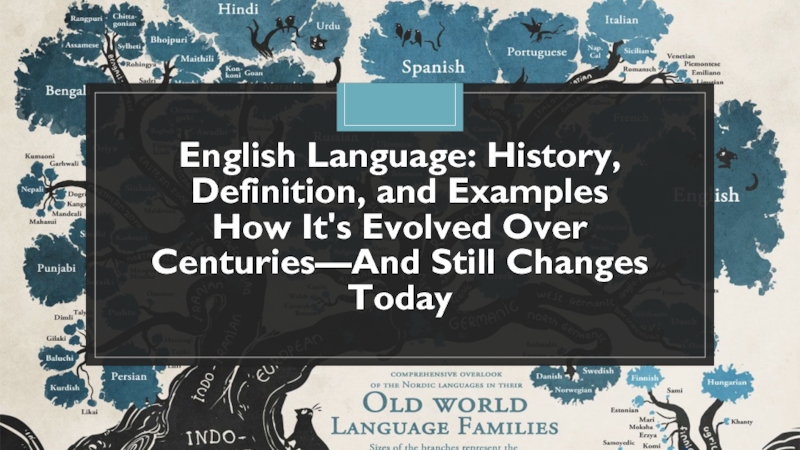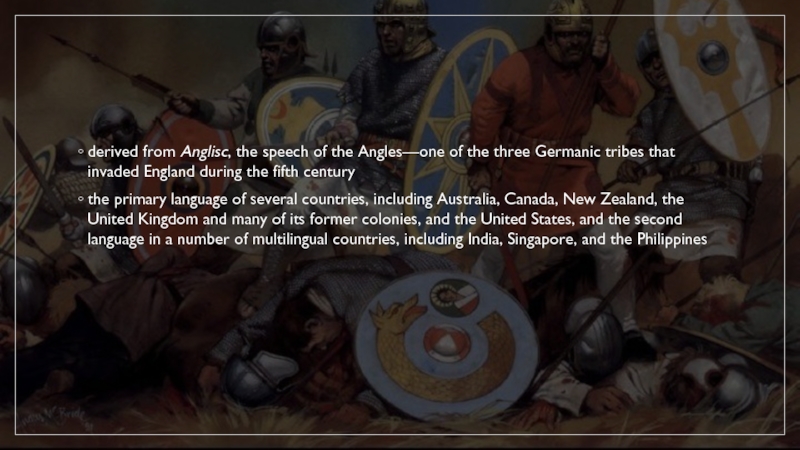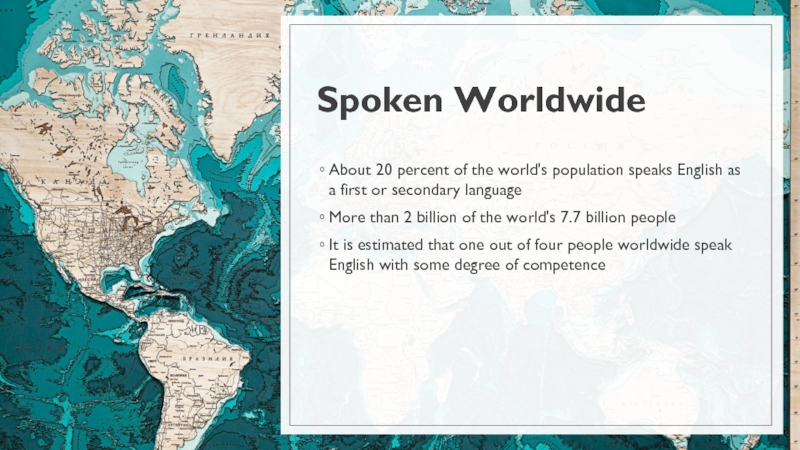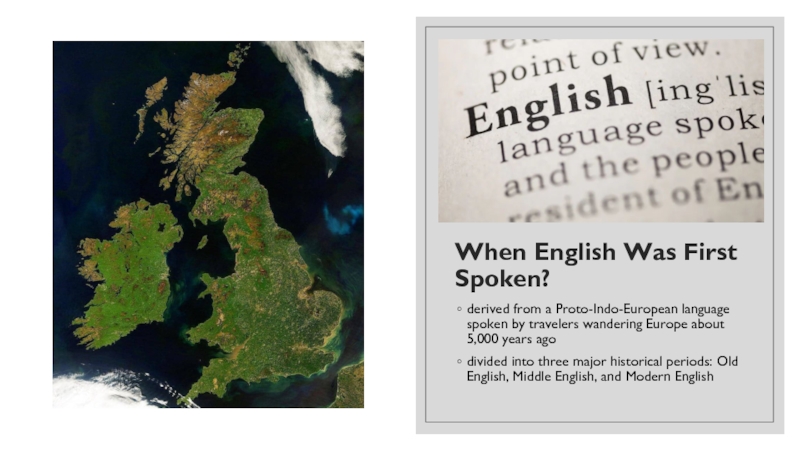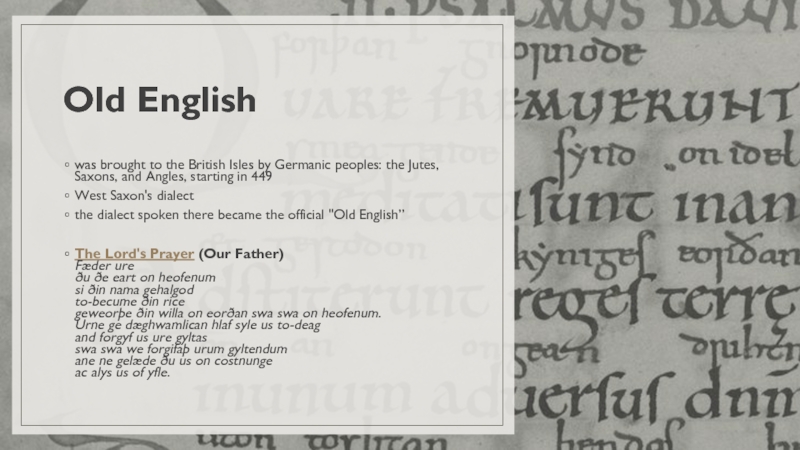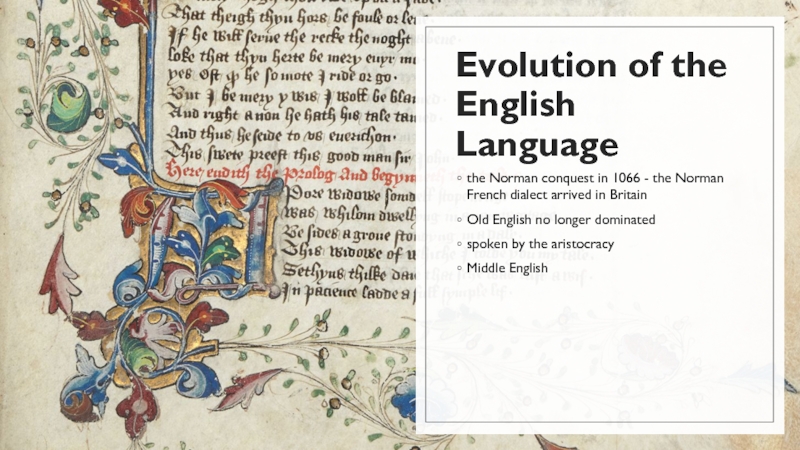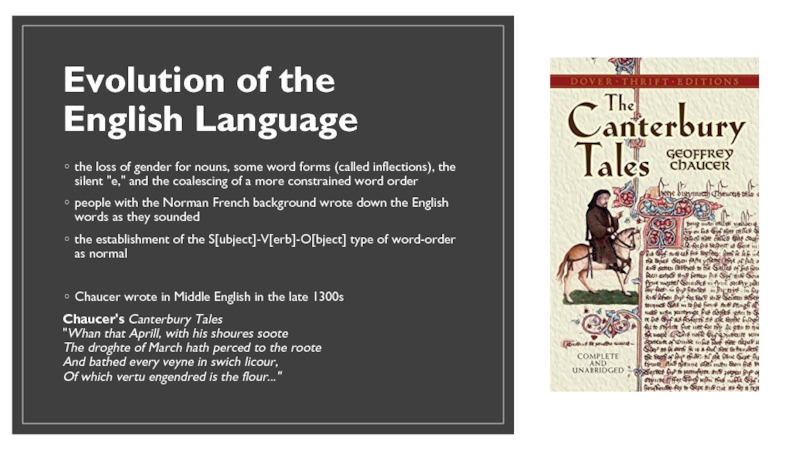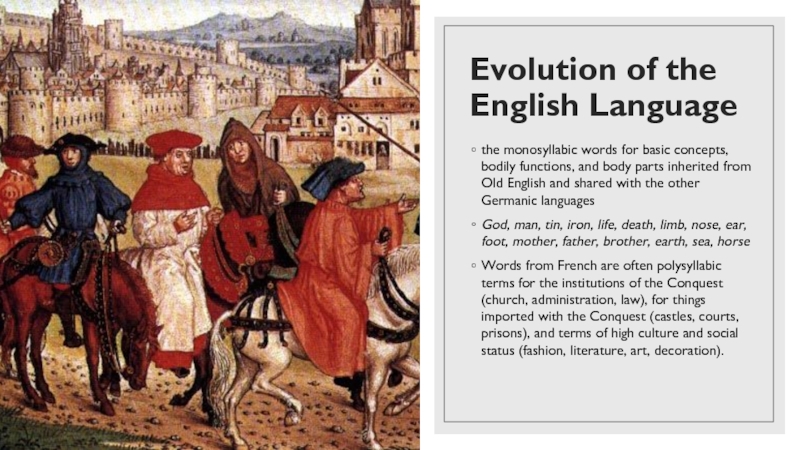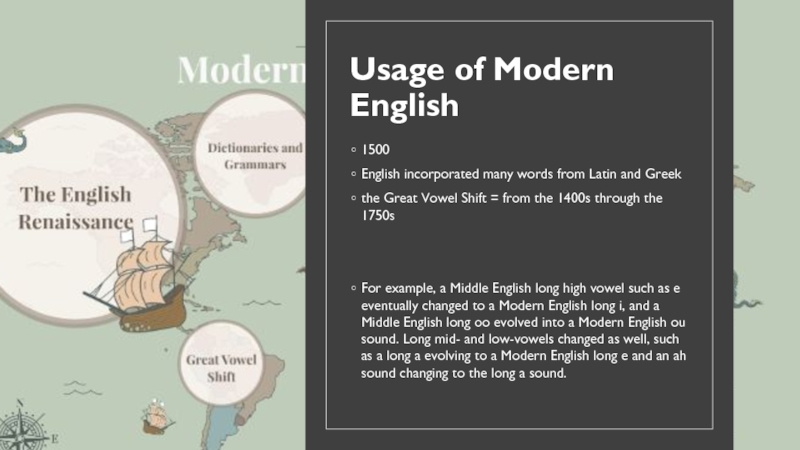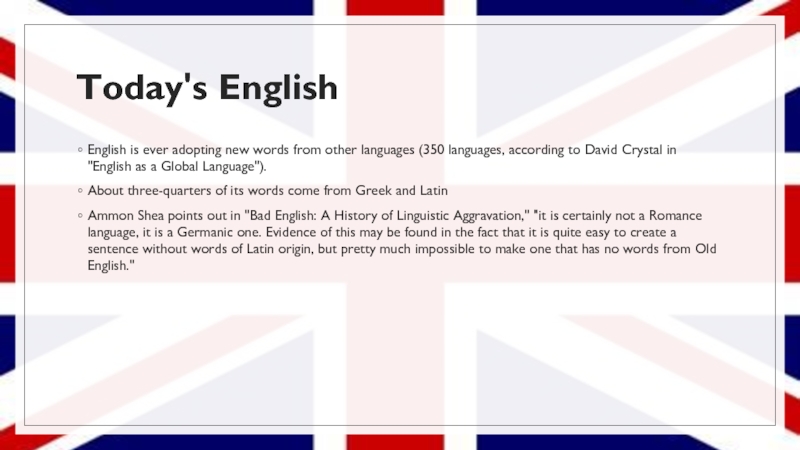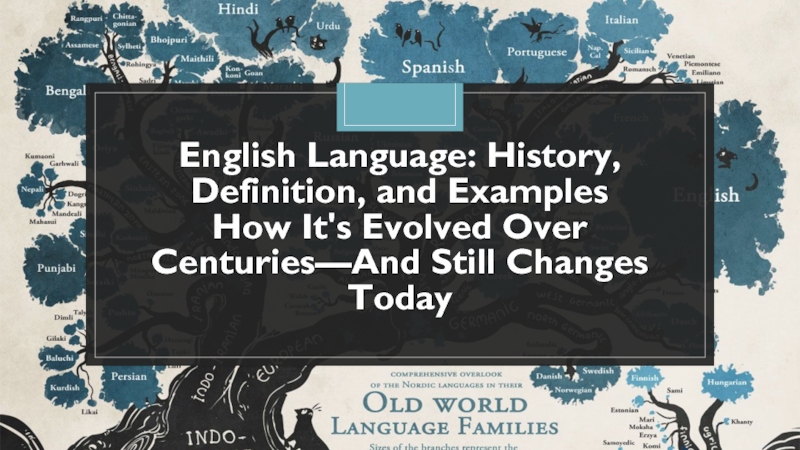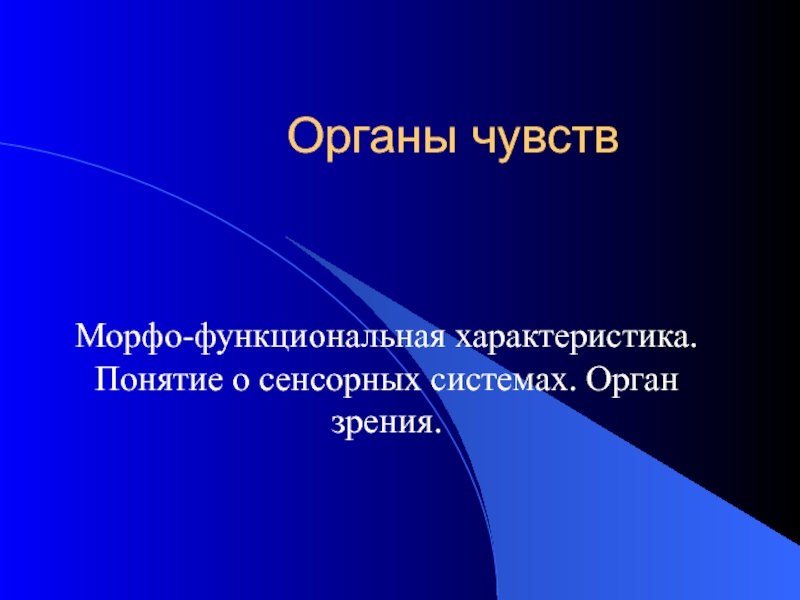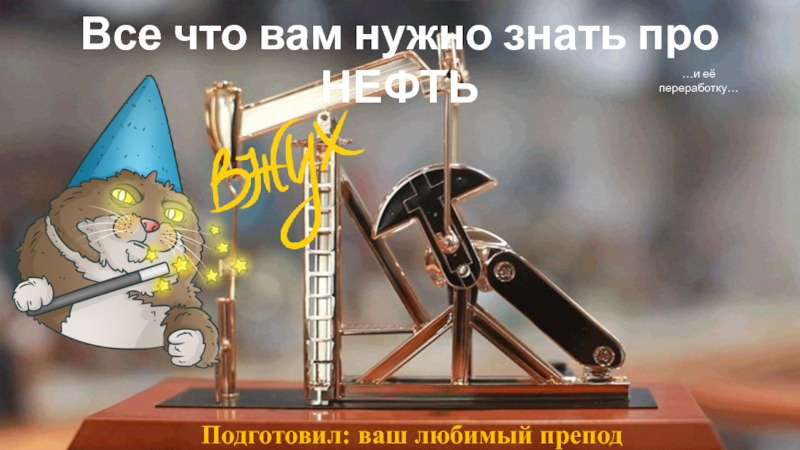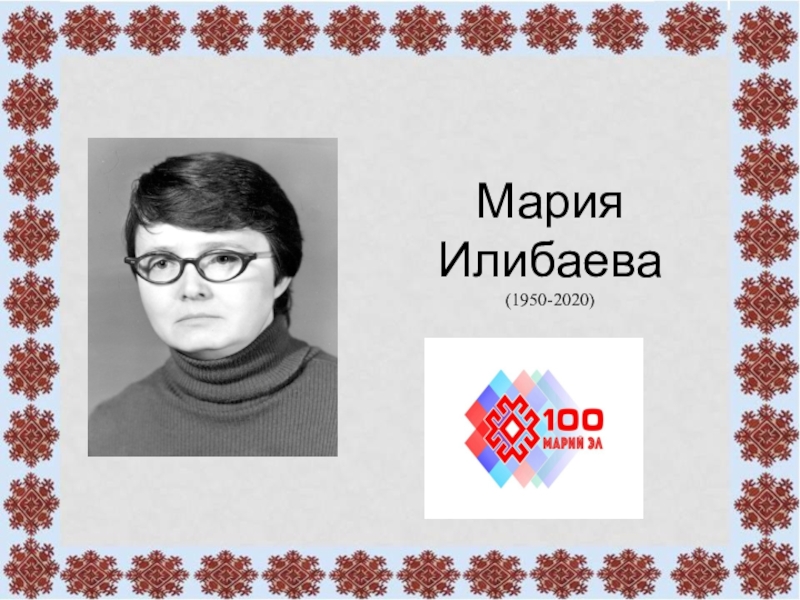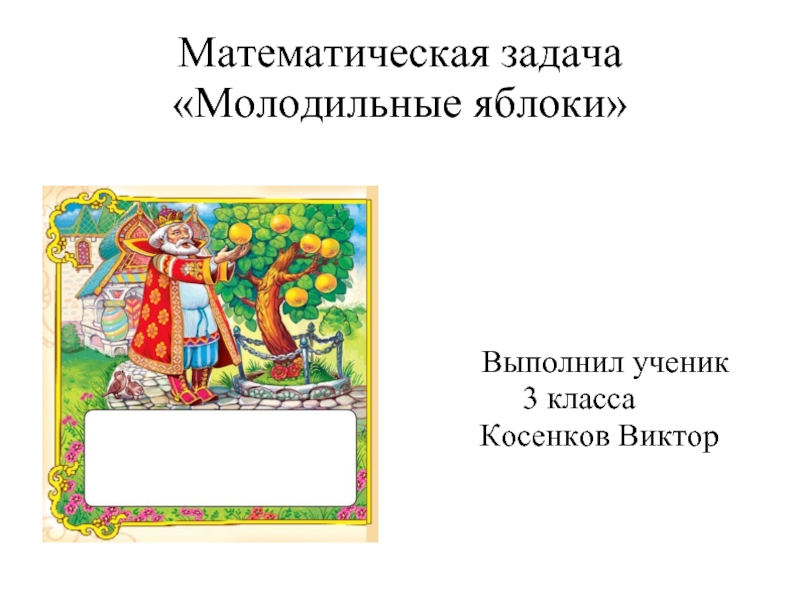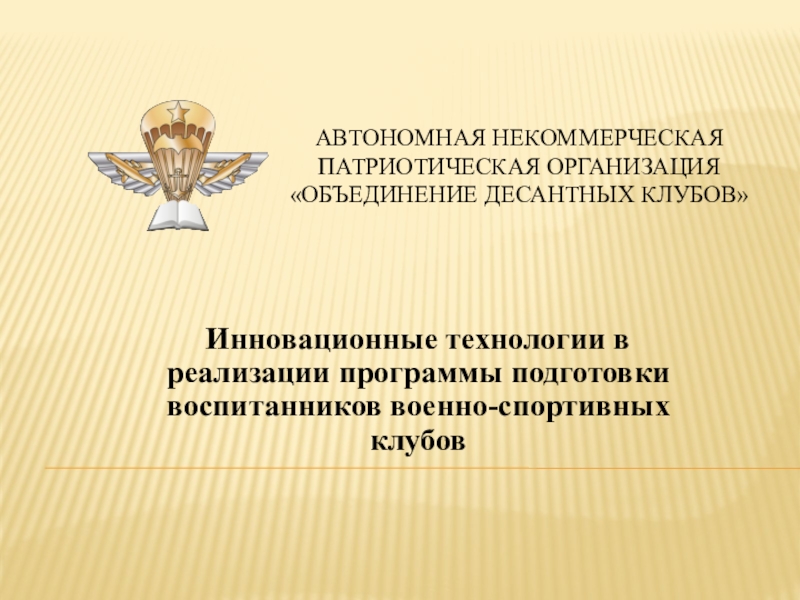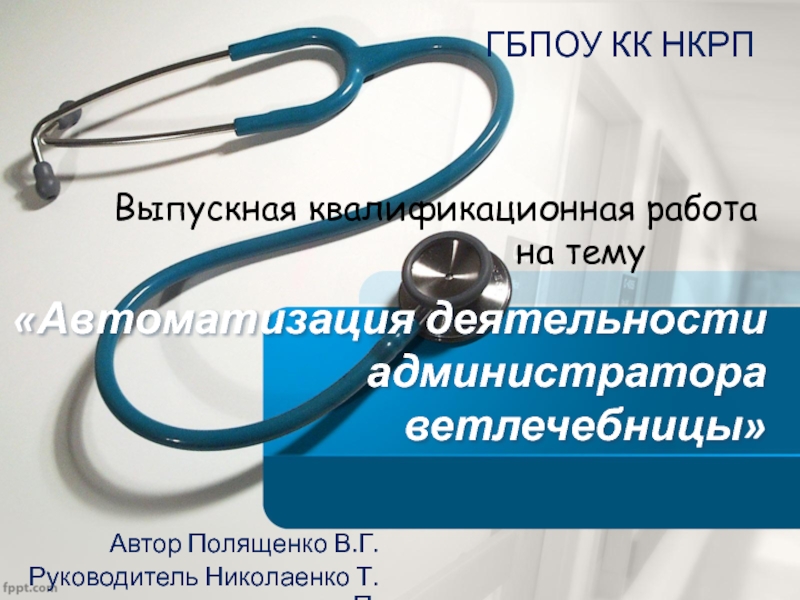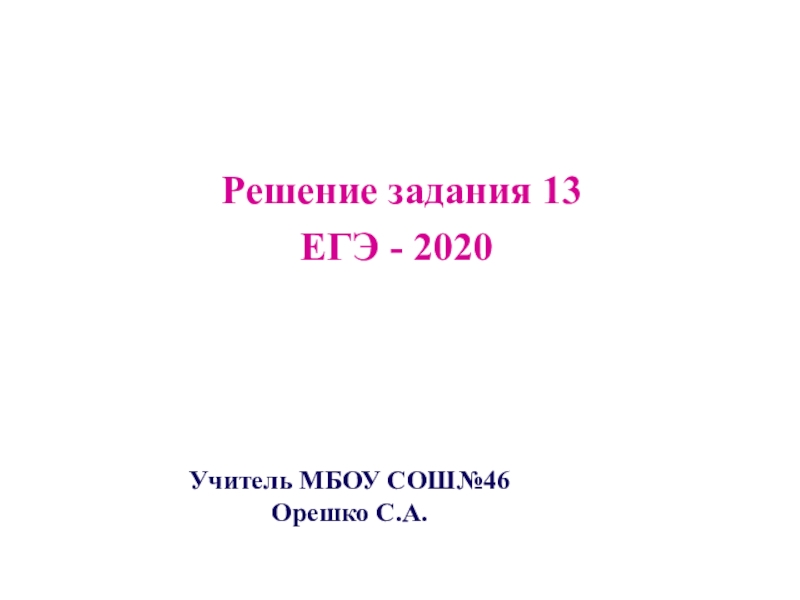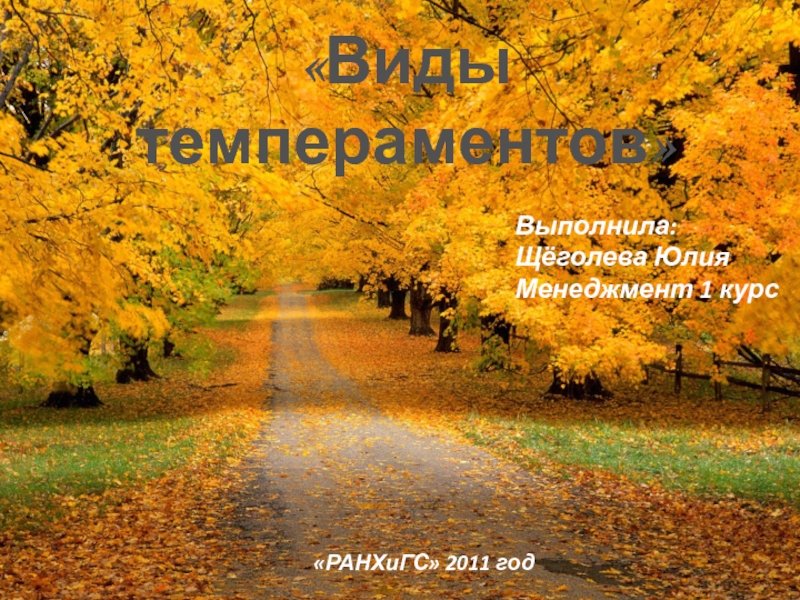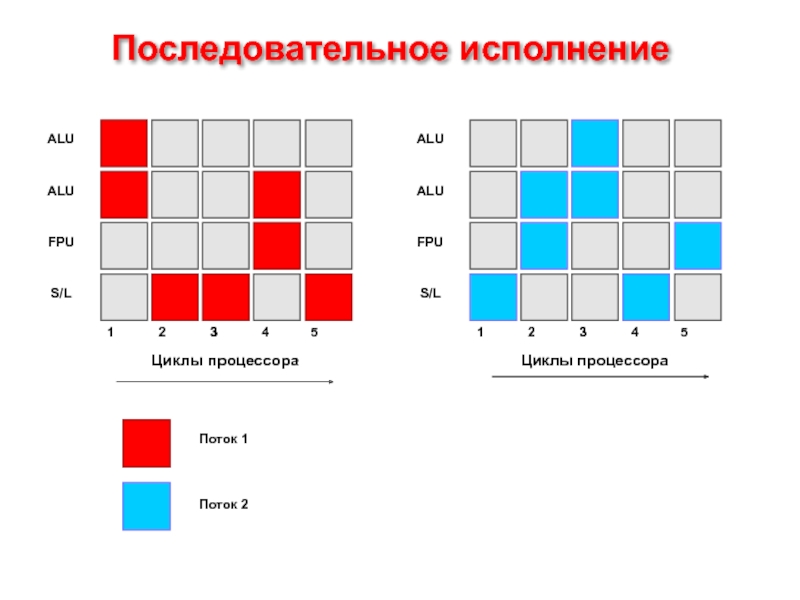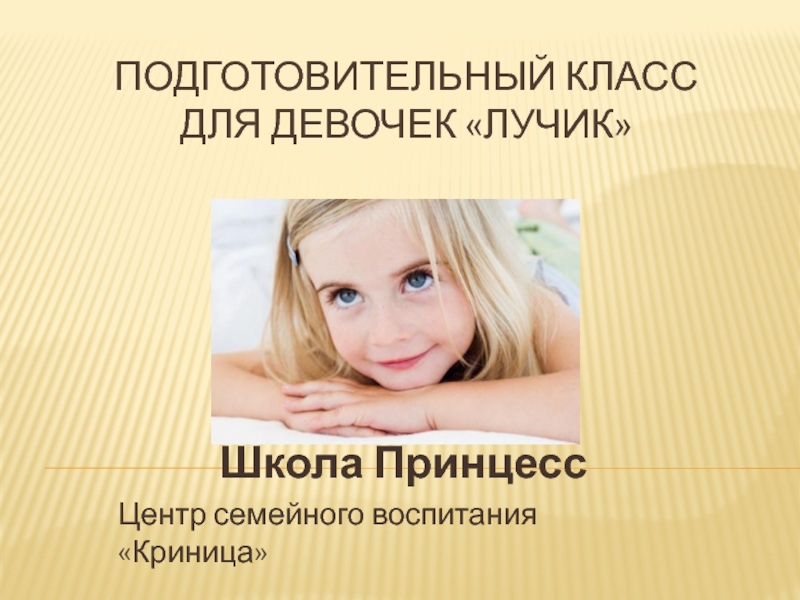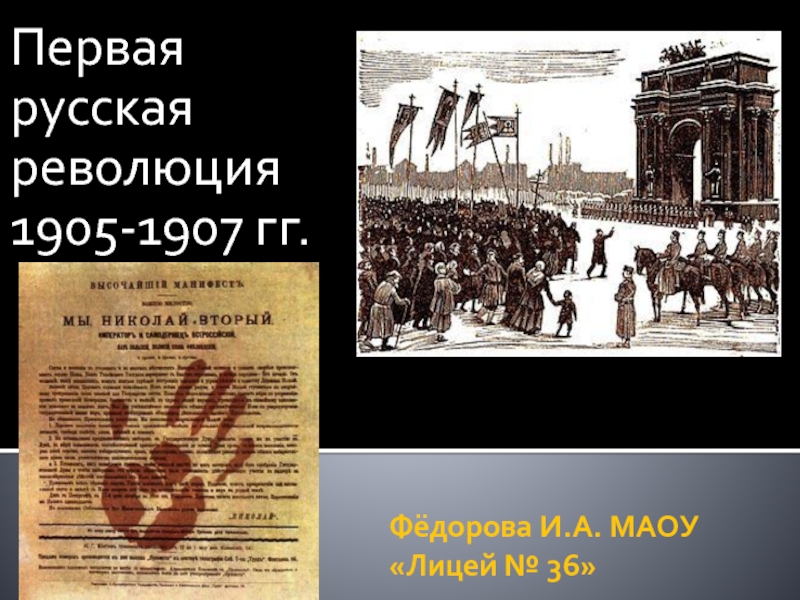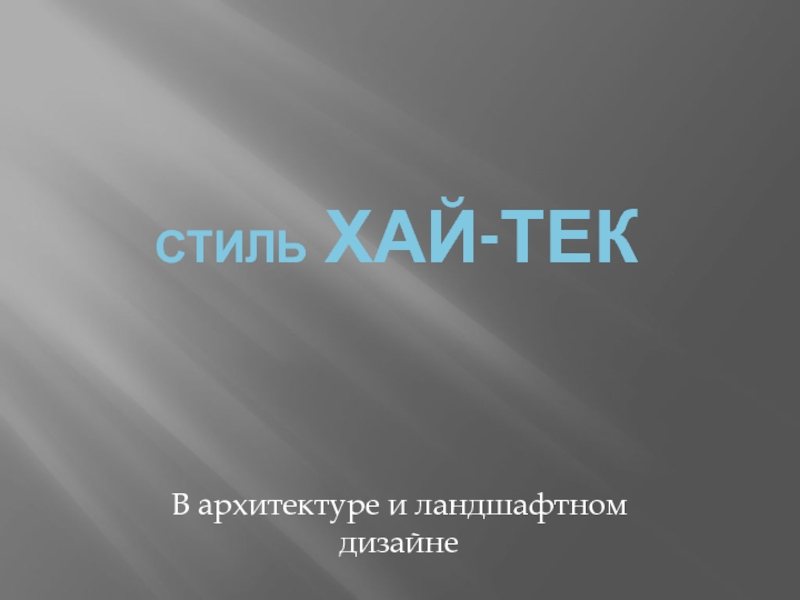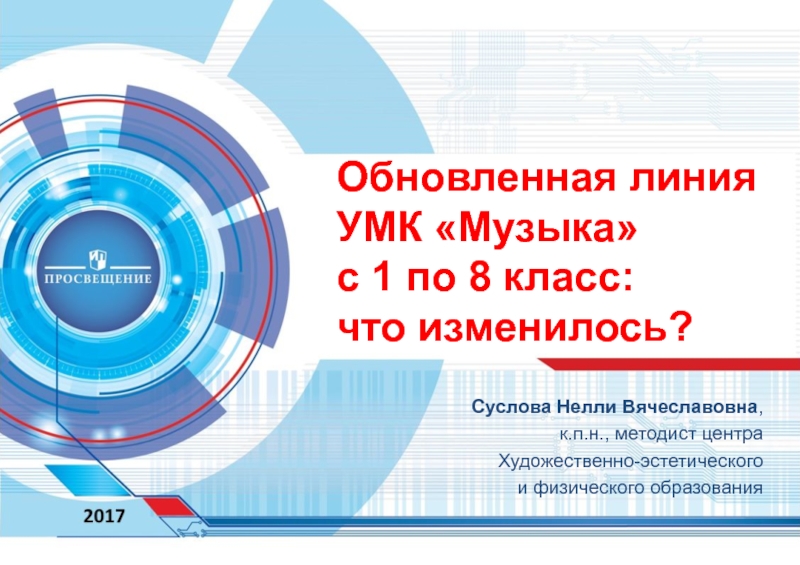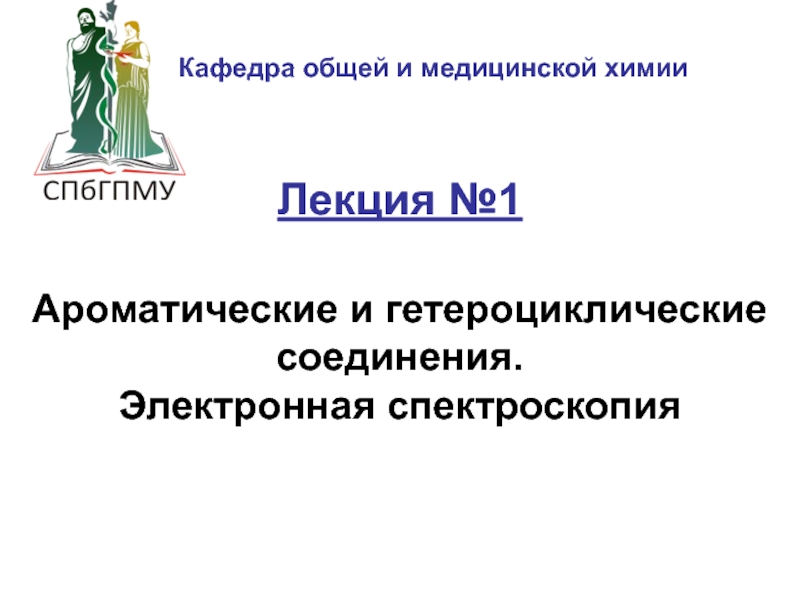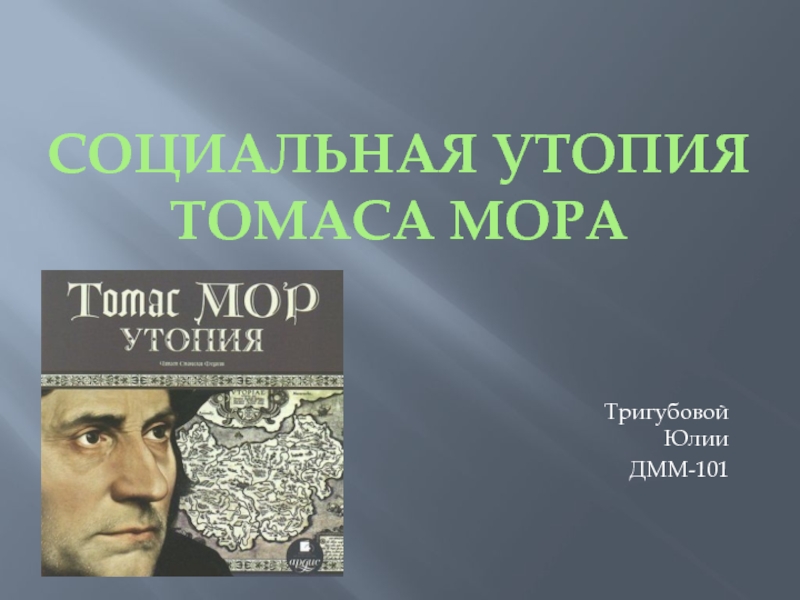Разделы презентаций
- Разное
- Английский язык
- Астрономия
- Алгебра
- Биология
- География
- Геометрия
- Детские презентации
- Информатика
- История
- Литература
- Математика
- Медицина
- Менеджмент
- Музыка
- МХК
- Немецкий язык
- ОБЖ
- Обществознание
- Окружающий мир
- Педагогика
- Русский язык
- Технология
- Физика
- Философия
- Химия
- Шаблоны, картинки для презентаций
- Экология
- Экономика
- Юриспруденция
English Language: History, Definition, and Examples How It's Evolved Over
Содержание
- 1. English Language: History, Definition, and Examples How It's Evolved Over
- 2. derived from Anglisc, the speech of the
- 3. Spoken WorldwideAbout 20 percent of the world's
- 4. When English Was First Spoken?derived from a
- 5. Old Englishwas brought to the British Isles
- 6. Evolution of the English Languagethe Norman conquest
- 7. Evolution of the English Languagethe loss of
- 8. Evolution of the English Languagethe monosyllabic words
- 9. Usage of Modern English1500English incorporated many words
- 10. Today's EnglishEnglish is ever adopting new words
- 11. English Language: History, Definition, and Examples How It's Evolved Over Centuries—And Still Changes Today
- 12. Скачать презентанцию
derived from Anglisc, the speech of the Angles—one of the three Germanic tribes that invaded England during the fifth centurythe primary language of several countries, including Australia, Canada, New Zealand, the
Слайды и текст этой презентации
Слайд 1English Language: History, Definition, and Examples How It's Evolved Over Centuries—And
Still Changes Today
Слайд 2derived from Anglisc, the speech of the Angles—one of the
three Germanic tribes that invaded England during the fifth century
the
primary language of several countries, including Australia, Canada, New Zealand, the United Kingdom and many of its former colonies, and the United States, and the second language in a number of multilingual countries, including India, Singapore, and the PhilippinesСлайд 3Spoken Worldwide
About 20 percent of the world's population speaks English
as a first or secondary language
More than 2 billion of
the world's 7.7 billion peopleIt is estimated that one out of four people worldwide speak English with some degree of competence
Слайд 4When English Was First Spoken?
derived from a Proto-Indo-European language spoken
by travelers wandering Europe about 5,000 years ago
divided into three
major historical periods: Old English, Middle English, and Modern EnglishСлайд 5Old English
was brought to the British Isles by Germanic peoples:
the Jutes, Saxons, and Angles, starting in 449
West Saxon's dialect
the dialect spoken there became the official "Old English”
The Lord's Prayer (Our Father) Fæder ure ðu ðe eart on heofenum si ðin nama gehalgod to-becume ðin rice geweorþe ðin willa on eorðan swa swa on heofenum. Urne ge dæghwamlican hlaf syle us to-deag and forgyf us ure gyltas swa swa we forgifaþ urum gyltendum ane ne gelæde ðu us on costnunge ac alys us of yfle.
Слайд 6Evolution of the English Language
the Norman conquest in 1066 -
the Norman French dialect arrived in Britain
Old English no longer
dominatedspoken by the aristocracy
Middle English
Слайд 7Evolution of the English Language
the loss of gender for nouns,
some word forms (called inflections), the silent "e," and the
coalescing of a more constrained word orderpeople with the Norman French background wrote down the English words as they sounded
the establishment of the S[ubject]-V[erb]-O[bject] type of word-order as normal
Chaucer wrote in Middle English in the late 1300s
Chaucer's Canterbury Tales "Whan that Aprill, with his shoures soote The droghte of March hath perced to the roote And bathed every veyne in swich licour, Of which vertu engendred is the flour..."
Слайд 8Evolution of the English Language
the monosyllabic words for basic concepts,
bodily functions, and body parts inherited from Old English and
shared with the other Germanic languagesGod, man, tin, iron, life, death, limb, nose, ear, foot, mother, father, brother, earth, sea, horse
Words from French are often polysyllabic terms for the institutions of the Conquest (church, administration, law), for things imported with the Conquest (castles, courts, prisons), and terms of high culture and social status (fashion, literature, art, decoration).
Слайд 9Usage of Modern English
1500
English incorporated many words from Latin and
Greek
the Great Vowel Shift = from the 1400s through the
1750s For example, a Middle English long high vowel such as e eventually changed to a Modern English long i, and a Middle English long oo evolved into a Modern English ou sound. Long mid- and low-vowels changed as well, such as a long a evolving to a Modern English long e and an ah sound changing to the long a sound.
Слайд 10Today's English
English is ever adopting new words from other languages
(350 languages, according to David Crystal in "English as a
Global Language").About three-quarters of its words come from Greek and Latin
Ammon Shea points out in "Bad English: A History of Linguistic Aggravation," "it is certainly not a Romance language, it is a Germanic one. Evidence of this may be found in the fact that it is quite easy to create a sentence without words of Latin origin, but pretty much impossible to make one that has no words from Old English."
